The Best Robin Williams Movie You've Never Seen
Be it Heaven or Hell, PB &J Sandwiches are Forever Polarizing
I like paintings by Claude Monet and Cy Twombly.
I like PC music. I like San Francisco’s Pier 39 and Rome’s Aventine Keyhole. I like reading plaques in museums, especially the charmingly poorly written ones. I like thrift store art and collecting matchbooks from places I’ve never been. I like Apple TV’s Silo.
I like the 2017 Safdie brothers thriller Good Time, the 2018 Julian Schnabel film At Eternity's Gate, the 2004 fantasy satire Ella Enchanted, and even the poorly-received 2012 Wachowskis’ science fiction flick Cloud Atlas.
All of the items above are emphatically, in technical terms, good-ish. They’ve got some problems. Some pros, some cons. It’s truly a matter of subjective preference whether you will look past their flaws to behold their beauty. Some paintings can be pretentious, some music can be abrasive, some tourist attractions can be gaudy and overcrowded. Some narratives can be meandering or boring or straight foolish at times. Some movies are polarizing — considered both juvenile and profound, grating and impactful. I like them despite their flaws.
To like What Dreams May Come — the 1998 film directed by Vincent Ward, starring Robin Williams, Cuba Gooding Jr., and Annabella Sciorra — you must be someone who is sentimental enough to see past the film’s imperfections enough to appreciate its texture, its imagination, its painterly eye.
If you enjoy some of the items I listed above, I am inclined to think you will find value in this moving picture.
I also know many of you haven’t seen this film: On Letterboxd, over 90% of the people I follow have not logged What Dreams May Come as “watched,” let alone reviewed the picture, despite its Academy Award win for visual effects. And so, I thought this week, before the interest is filled with a wave of think pieces analyzing the season ends of trendy cultural touchstones like Severance and White Lotus, we might take a few minutes to appreciate a sandwich-centric film that is as stunning as it is sentimental. (Say that five times fast.)
Setting the Scene
In the What Dreams May Come’s opening scene, Robin Williams lies, relaxed, in a sailboat on what is ostensibly Lake Como. A woman (Annabella Sciorra) in a similar vessel has difficulty steering, and they collide. She asks which side of the lake is Swiss. Later, she finds him sitting on the hillside and offers him a sandwich. (Alas, we don’t get a good look at the ingredients, but there's strong potential for these unidentified lunches to be gruyere croque messieurs.)
Williams’ voiceover narrates, “When I was young, I met this beautiful girl by a lake.” In an instant, most viewers are quick to point out the characters are on a lake, not by a lake. The audience is led to believe, at first, this choice of wording is a mistake. As the picture goes on, we see this is done purposefully, as if to whisper, “If you think you caught a mistake, it’s purposeful.”
This is the beginning of their relationship — in one lifetime, anyway. They get married, have children. Years later, unspeakable tragedies strike the family, one after another, all within the first few minutes of the movie. The plot then unfolds, cutting between an earthly reality and an impressionist afterlife.
Williams’ character Chris is a pediatrician and an aesthete, often advising his anxious wife Annie, an art museum curator by day and painter by night, on her work. After Chris dies (a plot point that is revealed in the trailer, logline, and marketing, so I’m not considering it a spoiler), we follow him and his guilt-ridden, grieving wife Annie on a journey to reconnect.
Click Individual Images in the Galleries Below to Enlarge
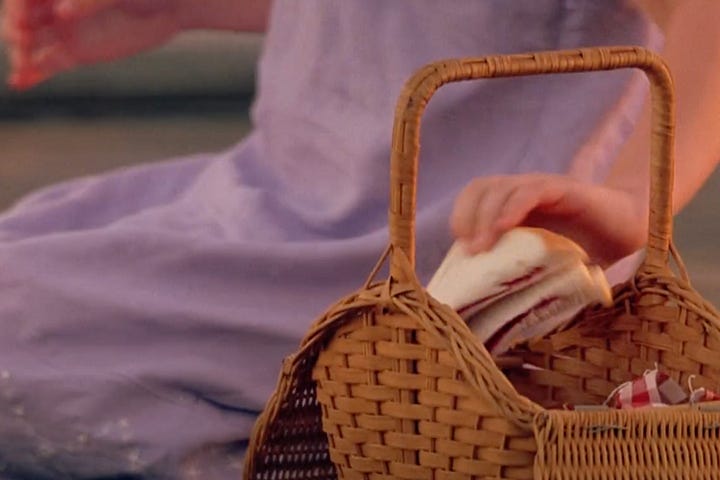
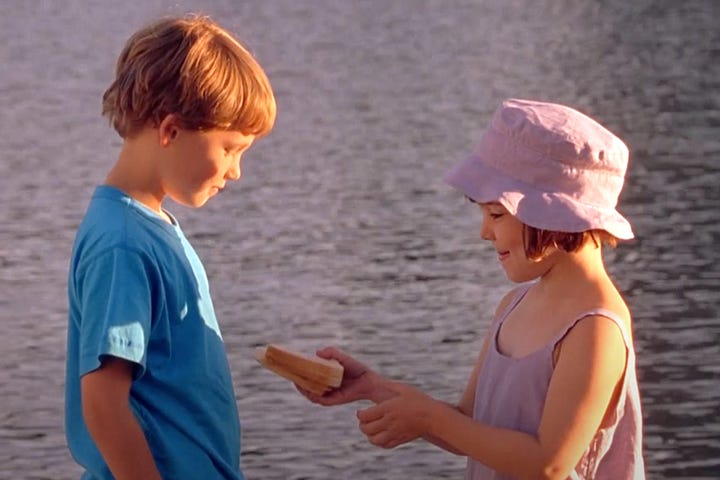
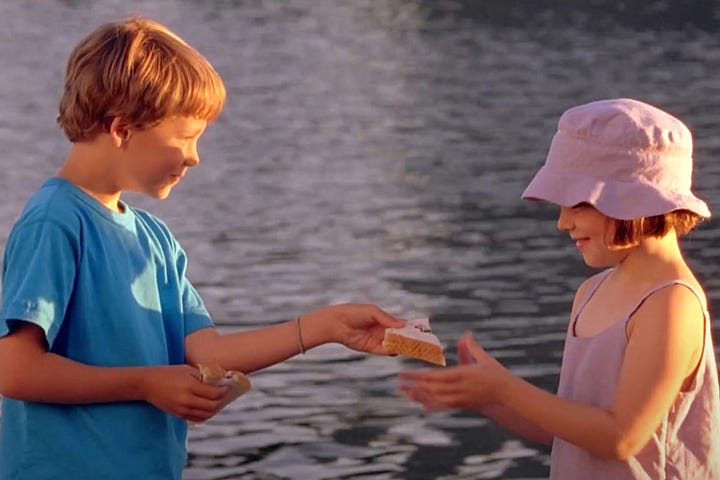
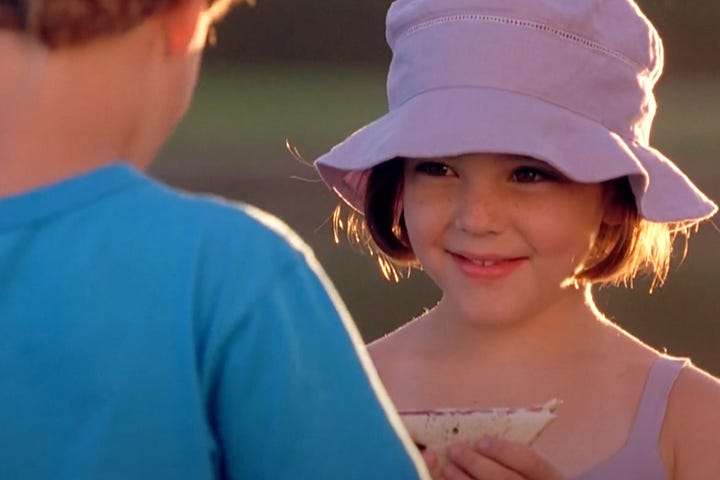
PB&J Spoilers
(Or, more to the point, If you want to avoid spoilers, scroll to the next heading.)
At the films end, Chris and Annie reincarnate as children in New Jersey. They are playing with toy boats by a lake, and the boats crash into each other. This new, little-girl version of “Annie” offers young “Chris” a sandwich. Of course, this time the sandwich looks to be peanut butter and jelly — the croque monsieurs not fitting the palette of a kindergartener.
At first, the PB&J shown on screen has a bite taken out of it. But in the following close-up shot, little Annie holds an unbitten sandwich. Whether you think this is a mistake or has purpose depends on how much you like the film, and how much your sense of reality has been suspended.
Sentimentality Can Be Fresh
Sentimentally, the film not only suggests we may have soulmates, but that we may have lived multiple lives with these soulmates, finding them again and again in each lifetime. (Another tongue-twister for the folks who actually read this piece and don’t just skim!)
Other aspects of the film fit a more Christian version of the afterlife — with heaven and hell being prominent settings. Art is the predominant motif, giving way to gorgeous depictions of characters' personal heavens made of gooey oil paints and storybook cutouts.
There are problematic aspects, too. In heaven, it is revealed that anyone can take on different physical appearances and forms, which gives way to people who were once white taking on the appearance of a different race. As usual, the movie does not pass the Bechdel test. Some people may find the messages espoused in the film to be nothing more than tacky, empty platitudes.
More importantly to the cynic in me, the film has an alternate ending, the one thing film school taught me is the tell-tale sign of a horrible film. “Making a film without an ending in mind, I was taught, is reckless at best, and asinine at worst!” my brain cries. Personally, if I were at the helm, I would change the film's ending entirely.
And yet.
In spite of its many flaws, I found the film to be so plainly beautiful — both visually and creatively — that I’d recommended it to anyone.
When Chris first arrives to his own personal heaven, the world is so new, the paint is literally still wet. We hear his footsteps squishing through rolling fields, and see his hands stain blue when he pushes delphiniums out of his path. Throughout the film, there are dozens of shots I would need multi-hour behind-the-scenes seminars to completely wrap my brain around how the production pulled them off. Below, I’ve copied a few screen captures the internet has trodden well in the hopes you, too, may find them impressive enough to spend $3.99 to rent the film.

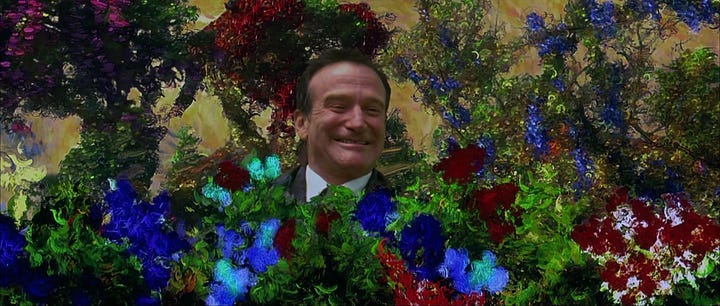
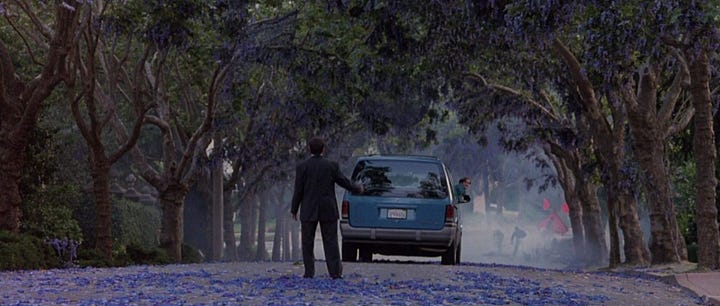
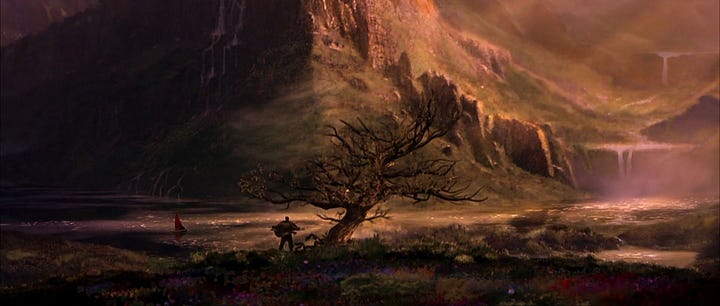
And indeed, that’s what you’ll have to spend at time of publication — I’ve noticed the subscription options are playing hot potato with this flick for now, but a few weeks ago I believe it was streaming on MGM+ (a streaming service I’m happy to see is still in existence) so keep your eyes open.
I’ll leave you with a tidbit of movie trivia: The lauded composer Ennio Morricone originally wrote and recorded the score to What Dreams May Come, only to have his work replaced by Michael Kamen. (You can find both versions unofficially floating around the internet.) By consequence, Kamen said he only had “a little over three weeks” to complete the score, noting the time crunch “guarantee[d] a direct approach!”
If I had to guess, I would assume the takeaways from What Dreams May Come are so personal and sensitive that either of these scores, though different and evidently polarizing, are equally valid and correct.
Next week, we’ll be covering some of the aforementioned trendy television series nearing their season finales. Stay subscibed, and follow @FilmFlavor on Instagram, to stay in the loop.
In Case You Missed It…
Want more movie snacks? The #1 way you can support Film Flavor is by subscribing and sharing this post with friends via the buttons below!
With Gratitude,


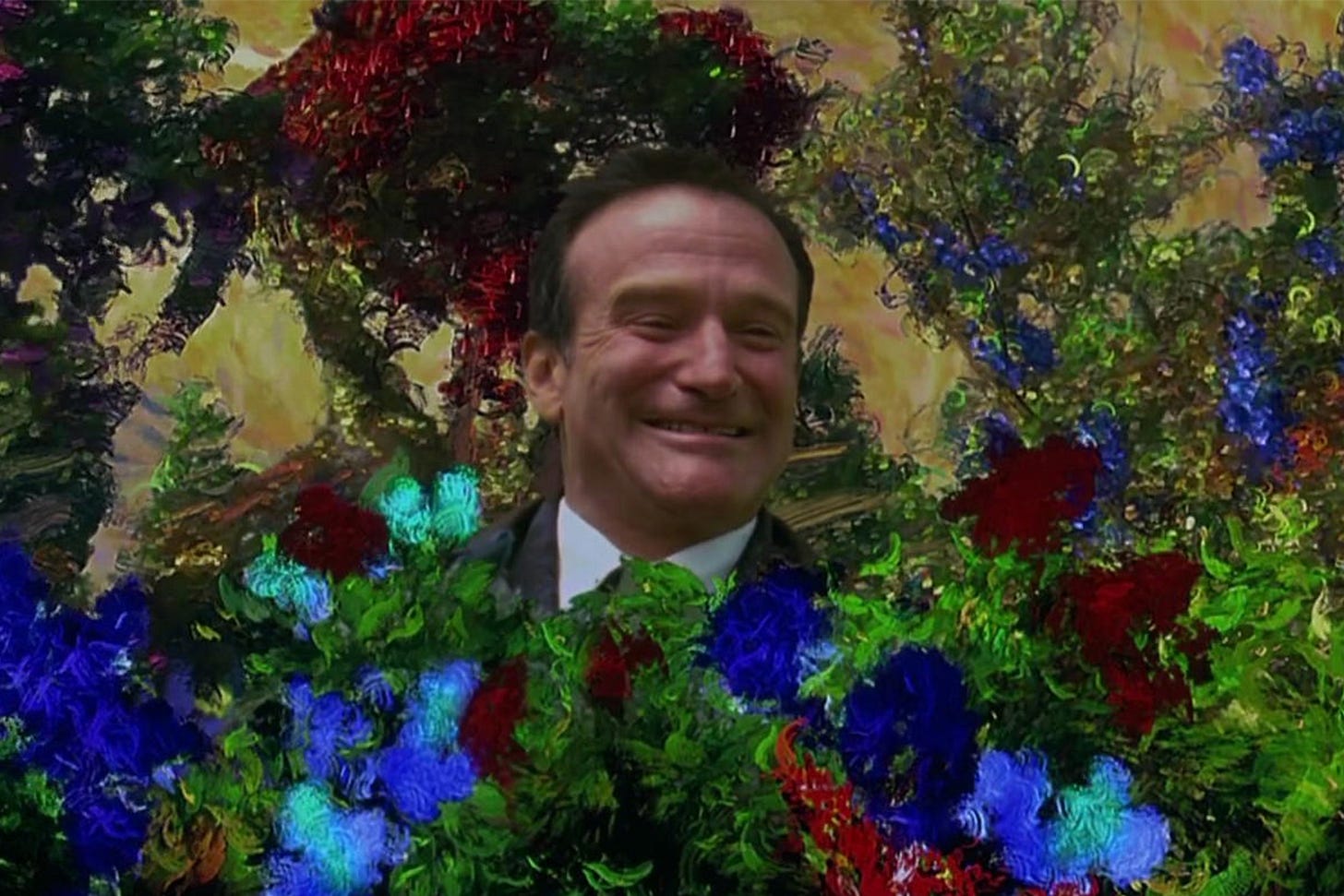
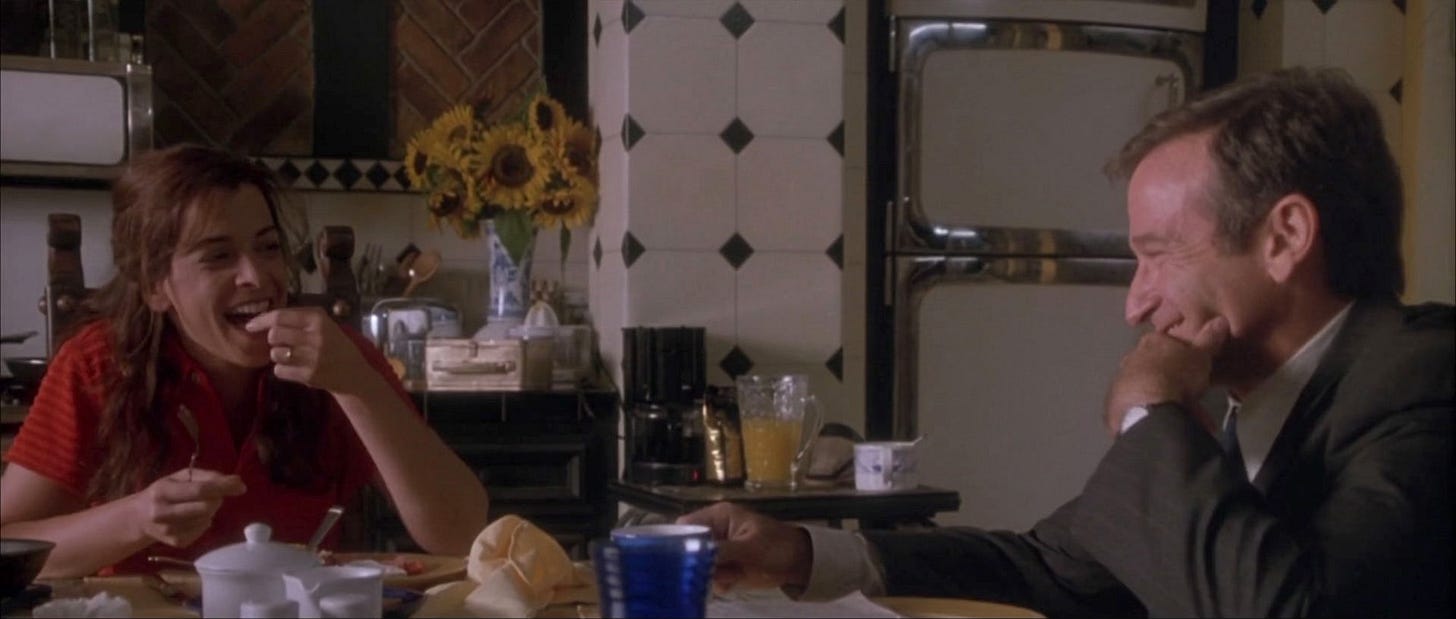
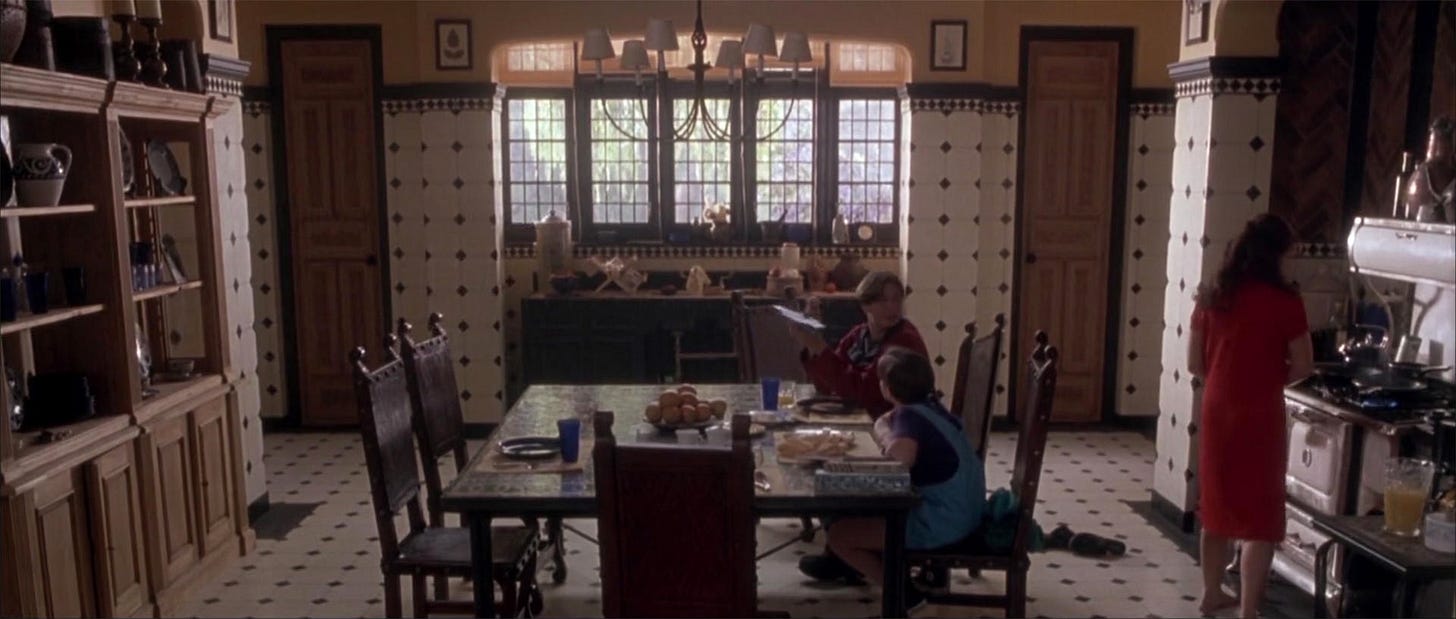
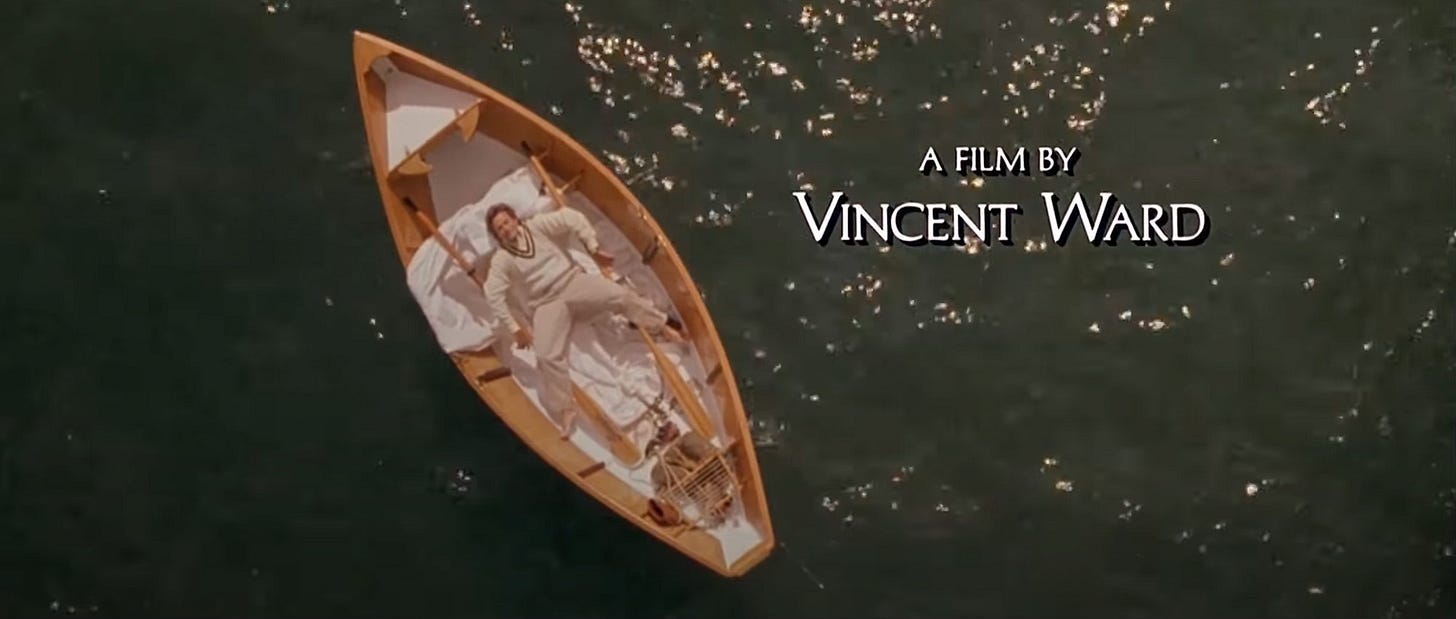
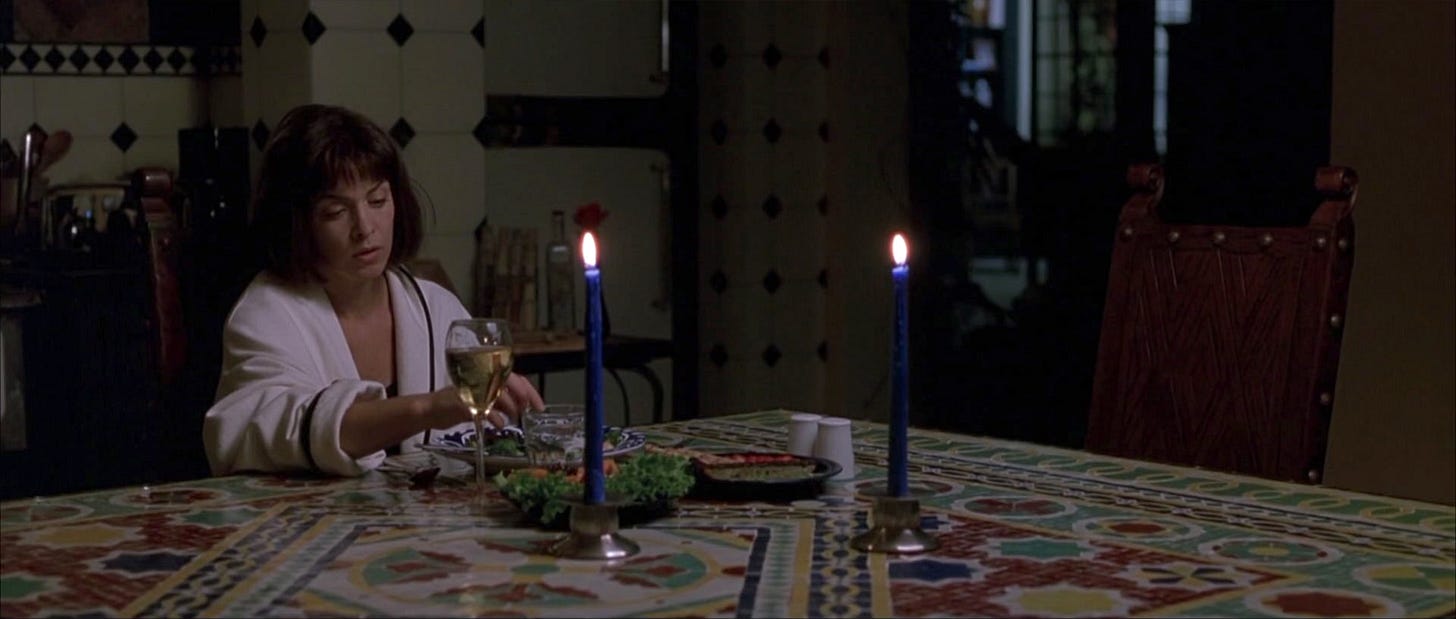


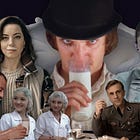
I loved this. Thank you. What Dreams May Come is one of my favorite film precisely because of the sentimentality. I saw it in the movie theatre when it was released. It was 5 years after my brother and both my parents died…I wept and wept at the end. It brought me so much solace then as it does now. 💗
I was sentimental enough to be moved by this film years ago - I’m interested to watch it again now. I’m wondering why the Morricone score was replaced!
And by the way, I really enjoy your writing - and I’m not skimming! 😄